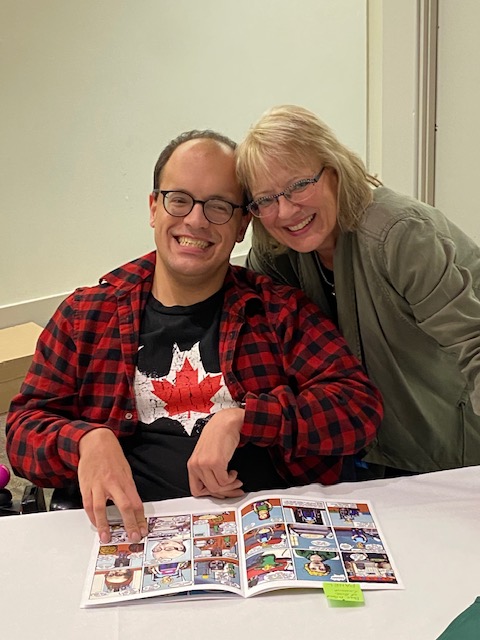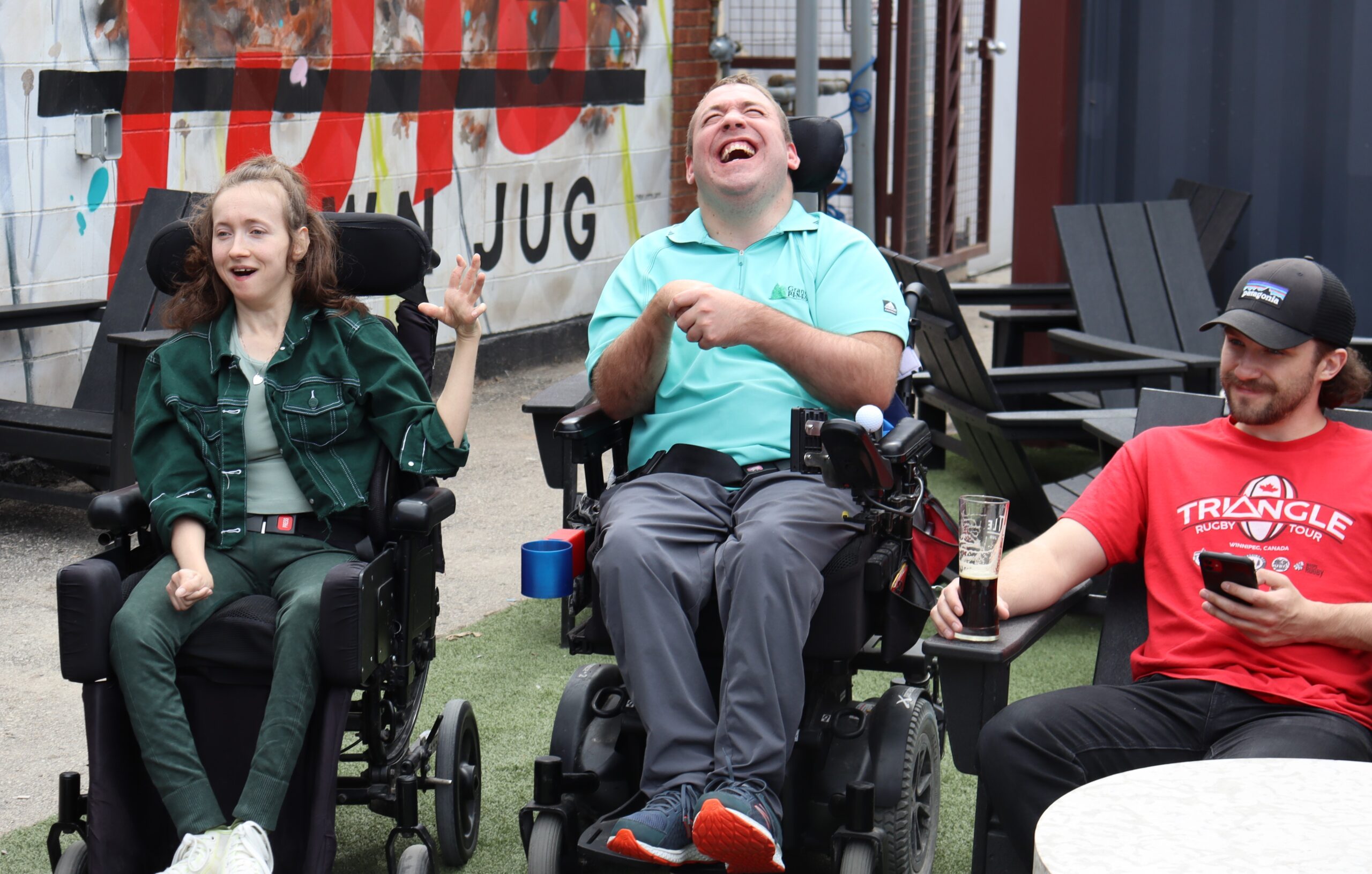A mother’s love can be unbreakable, and it can also unleash a determination that changes the lives of a whole community. Margy Nelson, founder of CoHabit, an integrated, accessible and affordable apartment complex that is currently in the planning stages, hopes that she can help bring about beautiful changes in the life of her son Bryce, who lives with Cerebral Palsy, and others like him.
Mrs. Nelson’s twin boys Bryce and Sean were born prematurely, and now aged 36, the different paths their lives have taken are her motivation to build CoHabit. Bryce, who lives with his mother and father, communicates what makes his life difficult. “He expresses frustration that he sees his twin, his mirror image, having a life,” she shares. “And he knows that he’s on the absolute periphery of all of that. That’s a truth. He lives his life on the outer circle of things. He has wondered why he’s alive. As his mom, that breaks my heart.”
And thus, the concept for CoHabit was born. “This is going to be an intentional community,” explains Jennifer Rodrigue, Project Lead at CoHabit. “It will be a building where people who have significant physical or other disabilities can live in an integrated way. It’s more than a place to live but a place to be known and to belong.”

Part of the challenge of finding appropriate housing and meaningful community is the funding models for the care of those with disabilities. “There are a lot of Manitobans who require supports but don’t qualify,” continues Mrs. Rodrigue. “To qualify for the main types of financial and day to day living assistance, you must have acquired your injury in childhood, and you need to have an intellectual disability. Adults with Cerebral Palsy don’t qualify, nor do people with acquired brain injuries.”
The natural result is families like the Nelsons, who have an adult son who lives with them. Another challenge is that many simply don’t understand what it means to live with a disability. “During the pandemic, people used to ask me how Bryce was doing,” remembers Mrs. Nelson. “I would tell them he was exactly the same. He has always been isolated and lonely; it’s the rest of us who experienced it for the first time.”
While the project is still in the planning phases, Mrs. Nelson has experience with getting things off the ground. Again, inspired by Bryce’s experiences, she founded and oversaw the Movement Centre for 20 years. “I’ve done this before, I can do it again,” she says with conviction. “I needed the right people around me, and that’s why I reached out to Réseau Compassion Network.”
Daniel Lussier, the CEO of Réseau Compassion Network, met with Mrs. Nelson and her team to hear about the vision and mission of CoHabit. “We knew right away that Margy and her team had an innovative response to a real need that exists for people like Bryce and many others who are being left behind,” he explains. “This project was a great fit with our strategic focus to finding ways to walk with organizations like CoHabit to make their vision come to life.”
Réseau Compassion Network contributed $200,000 towards capacity building and planning, and is looking forward to watching the project progress, but not as much as Mrs. Nelson. “For people like Bryce, who want to embrace life, this is going to be amazing,” she says. “He wants a place to belong, to be able to give back and live life with meaning. But most of all, Bryce will have hope, and that means he will have everything.”
•••
To learn more about CoHabit, please click here.

